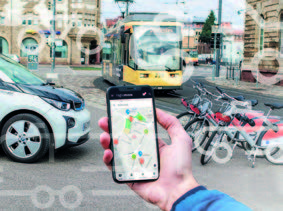
With an interdisciplinary concept, the research of the KIT Institute
for Transport Studies con-sists in making transport efficient and
sustainable. We analyze and forecast the impact of new mobility
solutions on the travel behavior with a holistic view of the transport
sector.
The effects of, for example, the regiomove Ports or of the MOIA
ridepooling service are simulated with our agent-based travel
demand
model mobiTopp. Furthermore, we are work-ing on
evaluation
of automated public transit systems, such as shown
in the KIRA project.
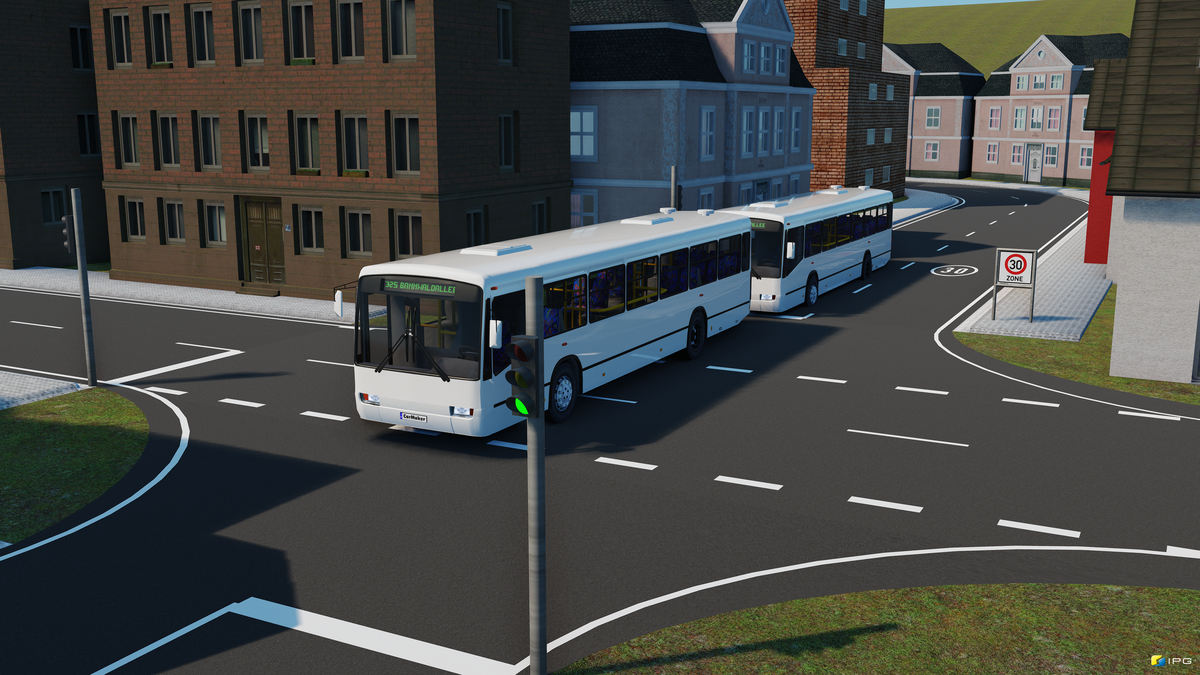
With platooning, vehicles are able to auto-matically follow the trajectory of a lead
vehicle at a short distance. This is achieved on the one hand by data communication via an air interface (“over-the-air”) from the vehicle in front to the vehicle behind (“vehicle-2-vehicle” / V2V). On the other hand, the following vehicle is equipped with sensors to fol-low the rear of the lead vehi-cle. Developed algorithms calculate the driving trajectory from these redundant data sources. By developing the technology automation can be advanced and economic efficiency can be created. This topic is being addressed, among others, in the TEMPUS project funded by the Federal Ministry for Digital and Transport.
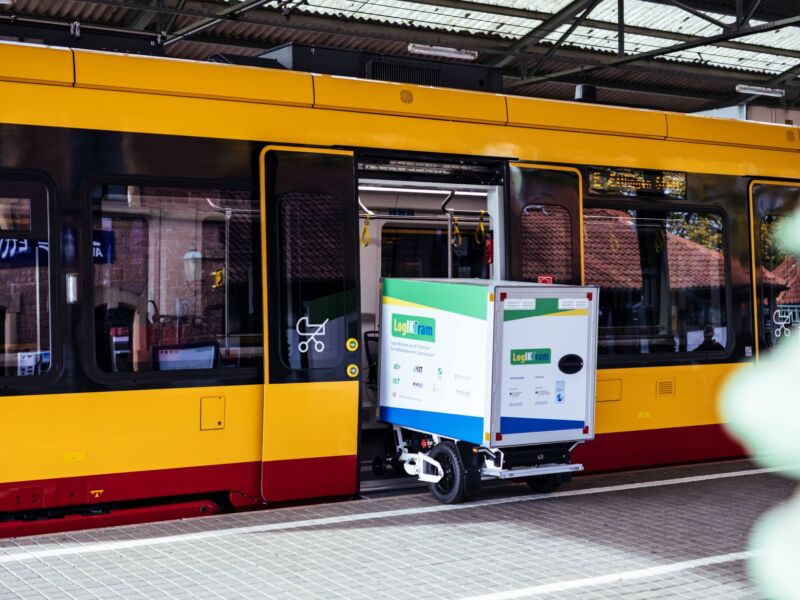
The innovative logistics concept to relieve road traffic...
link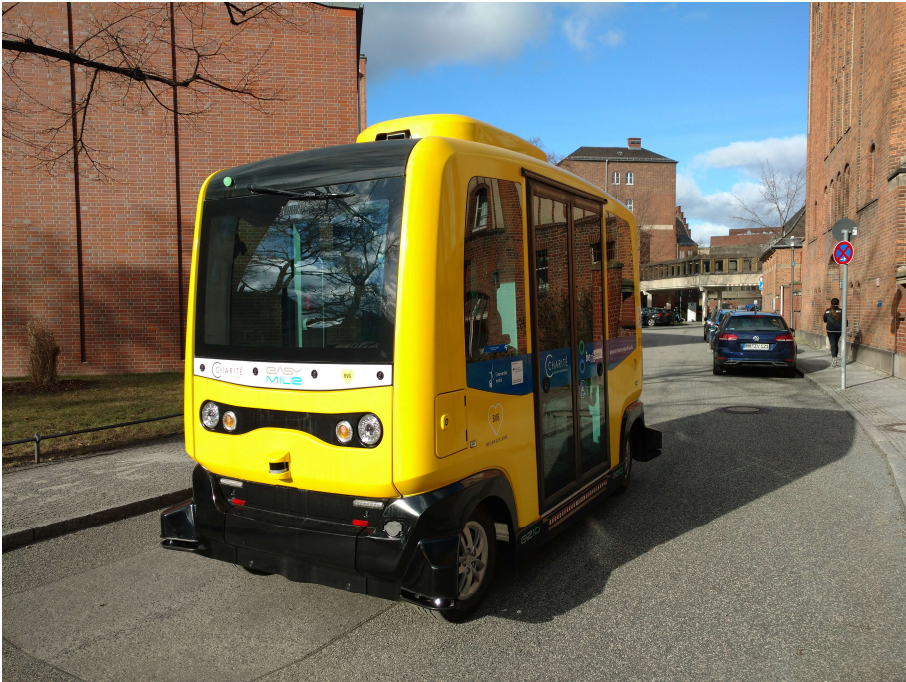
Handbook for municipalities on the automated and connected driving
Integration of automated means of transport in urban public transport
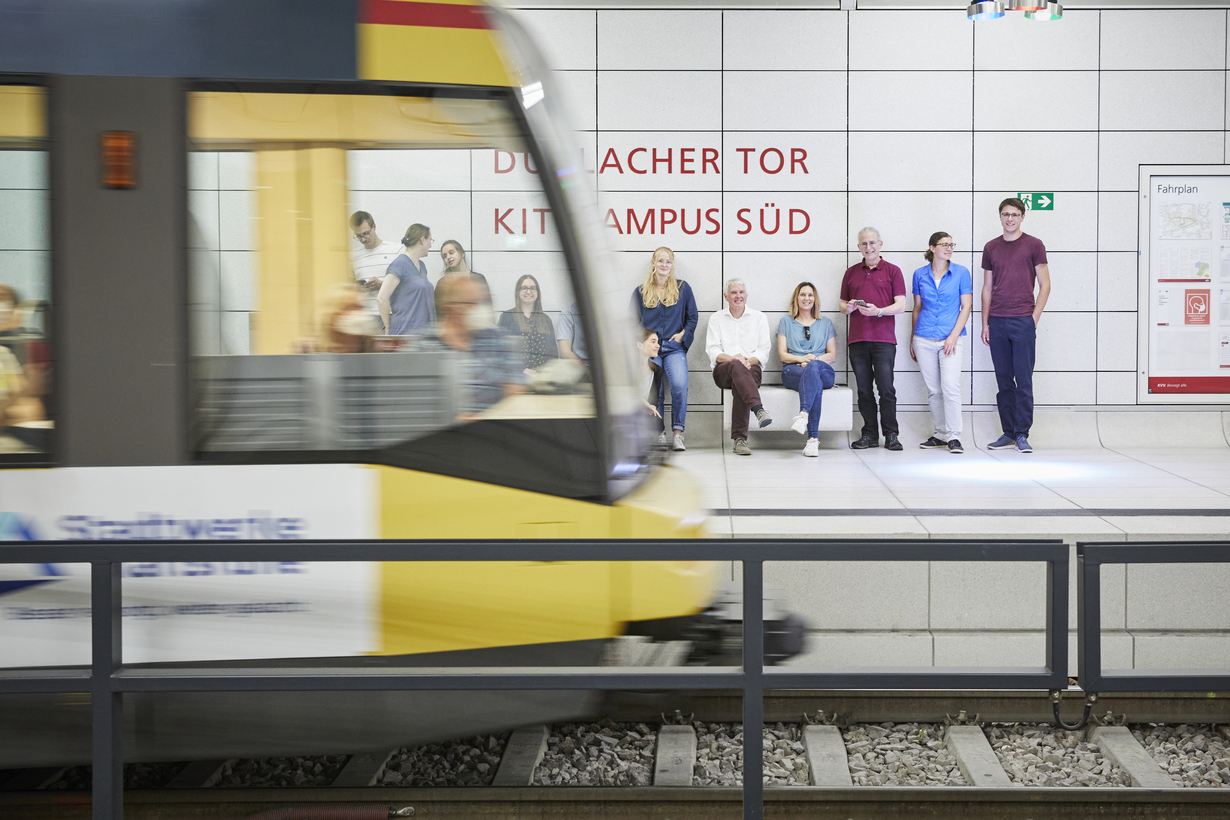
Automated Operational Functions of Tram Vehicles: Assessing the Potential of Connected Driving Technologies
link